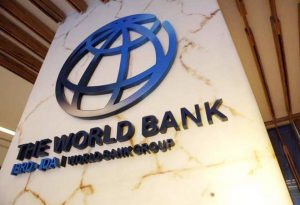By Onome Amuge
The World Bank has lowered Nigeria’s 2022 growth forecast to 3.1 per cent from a previous forecast of 3.8 per cent, while a slow growth of 2.9 per cent has been projected for 2023-2024 due to slow economic growth largely caused by dwindling revenue in the oil sector and a weak performance in other areas of the economy.
The international financial institution stated this in its latest Nigeria Development Update (NDU) and economic memorandum launched recently in Abuja.
Speaking at the event, Alex Sienaert, the World Bank’s lead economist for Nigeria, explained that despite favorable global oil prices, ‘business as usual’ economic management is not delivering desired outcomes. He added that even if a crisis is avoided in the near-term, long-standing policy and institutional challenges are persisting and severely constraining the economy.
“External and fiscal pressures have continued to grow, despite elevated global oil prices. Oil price booms have historically supported the Nigerian economy but this has not been the case in 2021–22.
“The average price of crude oil increased by over 150 percent from 2020 to 2022, yet Nigeria’s macroeconomic performance has weakened over this time, and its fiscal space has shrunk,” he said.
On why Nigeria is not benefiting from high global oil prices, the lead economist explained that aside from lower oil production in recent time, high production costs, theft and insecurity, joint-venture cash-call arrears, and inadequate investment have all had negative impacts on revenue.
He also faulted the high cost of the petrol subsidy, noting that the continuation of the petrol subsidy deducted directly from oil revenues, implies forgone fiscal revenues of 2.5–2.7 percent of GDP in 2022. He noted that this, combined with the protracted fall in oil production, has resulted in the lowest levels of net oil revenues in percent of GDP being transferred to the government in over a decade.
“If Nigeria continues with “business-as-usual” policies, the country will effectively be choosing a path that will lead to people’s prospects being hindered,” he warned.
Echoing the World Bank’s NDU, Sienaert disclosed that the country’s inflation hike has cut the existing minimum wage by 55 per cent, and also led to an increase in the number of poor Nigerians by five million in 2022.
Based on this, the World Bank’s top official emphasised the need for Nigeria to address inflation by reducing the federal government’s recourse to Central Bank of Nigeria (CBN) financing.
Sienaert further stated that a selected set of priority reforms are needed in Nigeria to chart a new growth path in the areas of macroeconomic and institutional enablers and also investment accelerators.
He also stressed the urgency of economic reforms to strengthen Nigeria’s macro-fiscal framework including; increasing oil and non-oil revenues,reducing inflation through a sequenced and coordinated mix of trade, monetary and fiscal policies to restore conditions for private investment and growth; removing petrol subsidy, and adopting a single, market-responsive exchange rate.
“Previous episodes of reform progress and high growth, such as in the 2000s, show that Nigeria’s economy can turn around quickly, and its tremendous economic potential that could be unleashed is well-known. If Nigeria chooses to make reforms that stabilize its macro-fiscal policy settings and support investment, this would be transformative for 80 million poor Nigerians, for Nigeria as a whole, and for Africa,” he said.
According to the World Bank, the Strategic Revenue Growth Initiative (SRGI) of the federal government is a welcome development. It added that reversing the previously declining trend in non-oil revenues as a share of GDP needs to be sustained and built upon.









